There has been a plethora of great American players in NHL history. If a lineup of them was constructed based on their skill set, accolades, and importance to the sport of hockey, what would that team look like?
Forward Line 1: Keith Tkachuk, Pat LaFontaine, Brett Hull
While Brett Hull was born in Canada, he played for Team USA internationally, so he gets a spot in this lineup for the Americans. He, coupled with the short but impressive career of Pat LaFontaine and the lengthy success of Keith Tkachuk makes for a brilliant American first line.
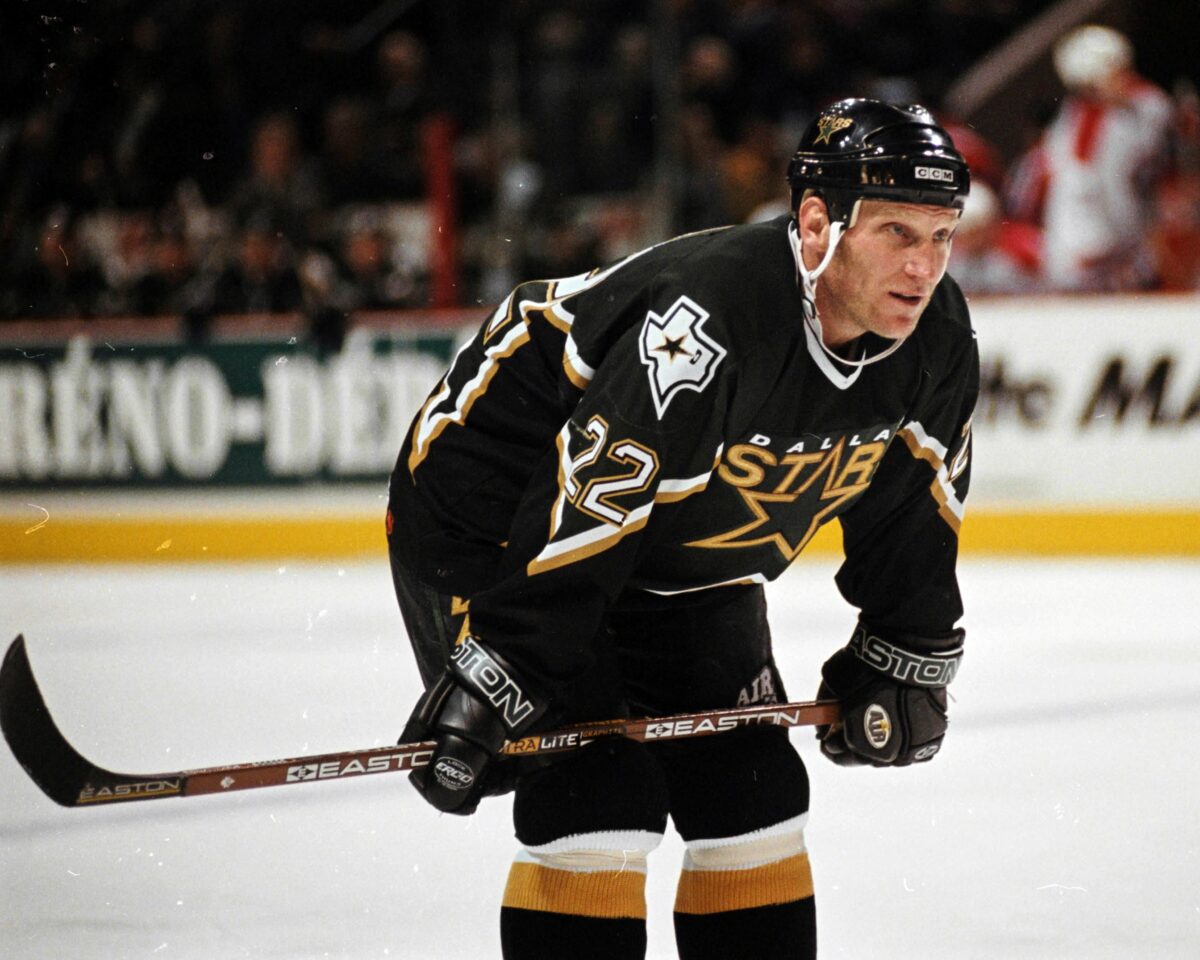
Tkachuk was one of the best power forwards of the 1990s and 2000s. He ranks among the very best in terms of goals, with 538 in his 1,201-game career. He was never able to win any major awards but led the league in goals in 1996-97 with 52. If the Maurice “Rocket” Richard Trophy existed back then, he would’ve been crowned the winner. Other than that season, he never truly had a standout year. It is his consistency, even lasting up until his mid-30s, that makes him one of the best American players in NHL history.
Sign up for our NHL History Substack newsletter
LaFontaine might have been highly regarded, but perhaps he would have gotten even more recognition had his NHL career not been so short. Unfortunately, he was only able to suit up for 865 games due to injuries. He never led the league in goals or points, nor won a major individual award other than the Bill Masterton Trophy. With that being said, he is one of the members of the exclusive 1,000-point club, despite his short career. His career-high of 148 points in 1992-93 was only beaten out by Mario Lemieux, which is impressive company. For having such an incredible prime, he is in the Hockey Hall of Fame, and a fantastic centerman for this first line.
Although not born in the United States, Hull made the decision to play for them internationally. In doing so, he is arguably the greatest hockey player to ever represent the country. Known for his strange hold on league goal scoring, he led the NHL in goals for three consecutive seasons, piling up 228 in just 231 games. He is the most recent player to score 50 goals in his first 50 games of a season, won two Stanley Cups, and a Hart Trophy for good measure. His 741 goals in 1,269 career games cement him as the generational goal scorer that he is recognized as.
Forward Line 2: John LeClair, Auston Matthews, Patrick Kane
On line two, there is a mix of 1990s, 2000s, 2010s, and even modern greatness on display. John LeClair may have been overshadowed by teammate Eric Lindros at times, but he was fantastic in his own right. Auston Matthews’ individual success so early in his career is impossible to ignore, and Patrick Kane has both individual and team success as well. In their primes, the offense of this line would be almost unstoppable.
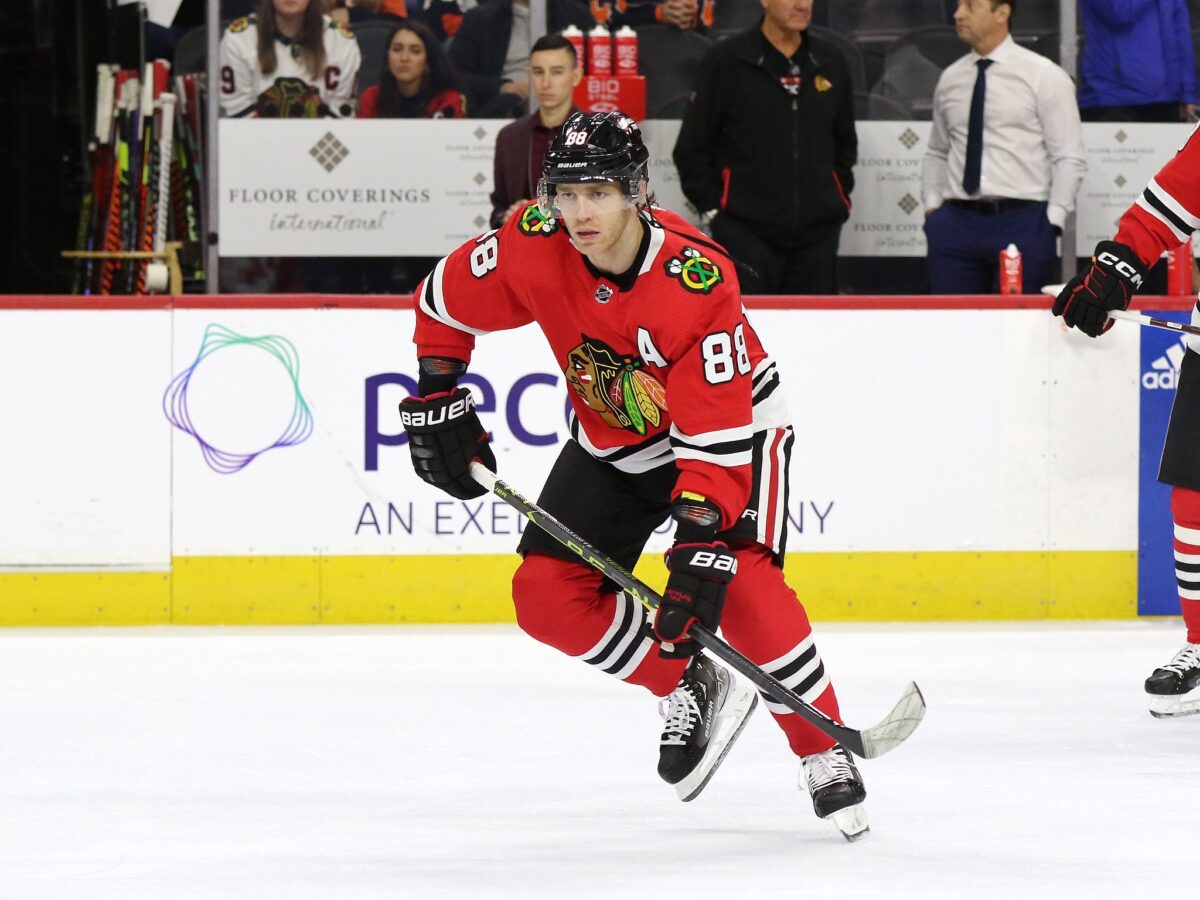
LeClair deserves his kudos for how great he was in the 1990s, particularly when the dead puck era came around. He had three consecutive 50-goal seasons, a feat that has only been accomplished by one other player since then, that being Alexander Ovechkin. He has one Stanley Cup to his name and no individual awards, but his consistency gives him some leeway.
Latest THW Headlines
It’s pretty early to have Matthews in the conversation for the best American players ever, but he has certainly made his case. He has a Hart Trophy, two Maurice “Rocket” Richard Trophies, and a Calder Trophy, and recorded his first 300 goals faster than any American player in NHL history. By the time his career is over, he could be regarded as the greatest American player of all time. His accolades are already impressive, and is a phenomenal player to have in the lineup.
To round out the second line, Patrick Kane is a no-doubt pick to make the team. His accolades are immense, with three Stanley Cups to his name, a Conn Smythe Trophy, a Calder Trophy, a Hart Trophy, and an Art Ross Trophy as well. Reaching the 1,000-point milestone in fewer games than NHL legends such as Sergei Fedorov and Jean Ratelle, he is deservedly seen as one of the best American hockey players in history.
Forward Line 3: Kevin Stevens, Mike Modano, Joe Mullen
Making up a less-modern trio are a few stars of the 1990s, including Kevin Stevens, Mike Modano, and Joe Mullen. What makes the three of them some of the best American forwards in NHL history?
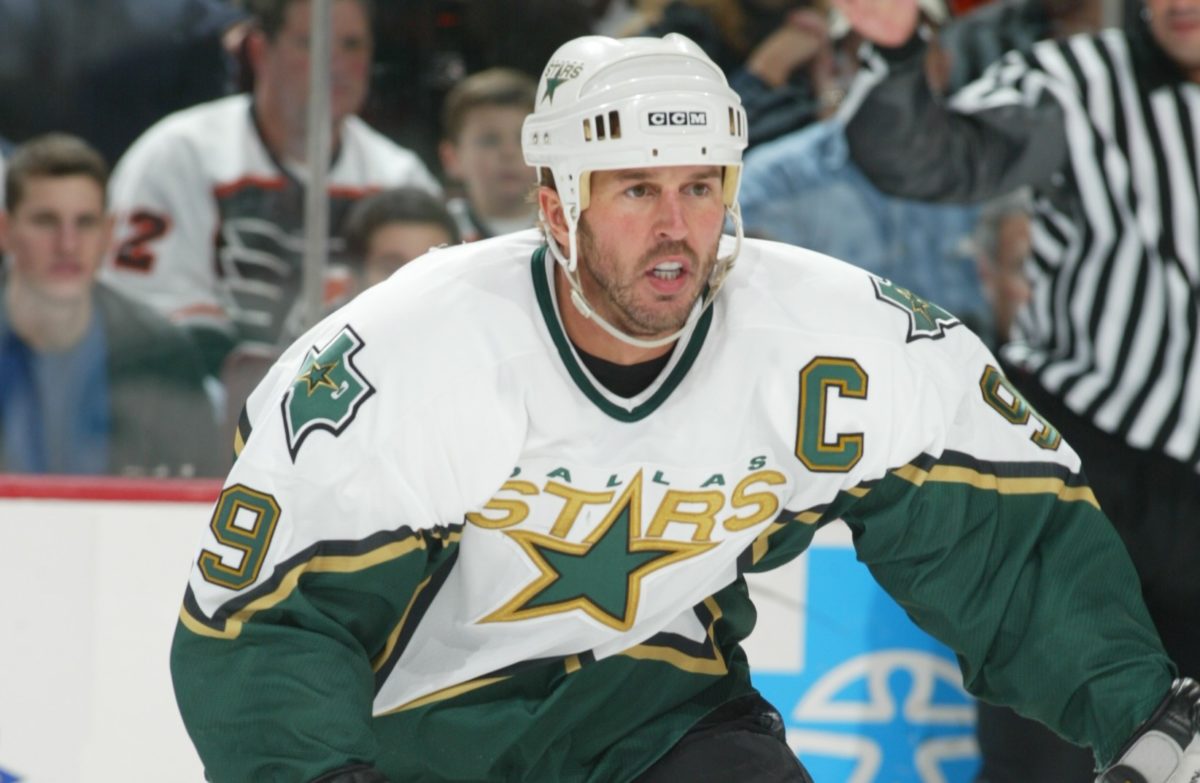
Stevens only had a few years of greatness, but he was still one of the more recognizable players of his era. His two best seasons were back-to-back, where he had 123 and 111 points in each of those seasons. He was good enough to finish eighth place in Hart Trophy voting, and even won a Stanley Cup during and before that stretch, leaving his total at two for his career. When he was in his prime, he was a championship-caliber athlete.
Some might make the argument that Modano was the best American-born NHL player of all time, and that isn’t something that’s easy to debate. In his 1,499-game career, he scored 561 goals and finished with 1,374 points, a Stanley Cup, and a Hall of Fame nod. While he never reached 100 points in an individual season or won a major award, the name of his game was how long he played at a high level.
Mullen, teammates with Stevens for a few seasons, was the very first American-born player to reach both 1,000 NHL points and 500 NHL goals. He won three Stanley Cups and two Lady Byng Trophies in his career, and has a seat in the Hockey Hall of Fame. He helps make this 1990s line an exceptional one.
Forward Line 4: Phil Kessel, Jeremy Roenick, Joe Pavelski
For the fourth and final forward line of the team, Phil Kessel, Jeremy Roenick, and Joe Pavelski round it out. With two modern players and one who was at his best in the 1990s, there is a level of recency in its composition. Some goal scoring and two-way play make this line a great one.
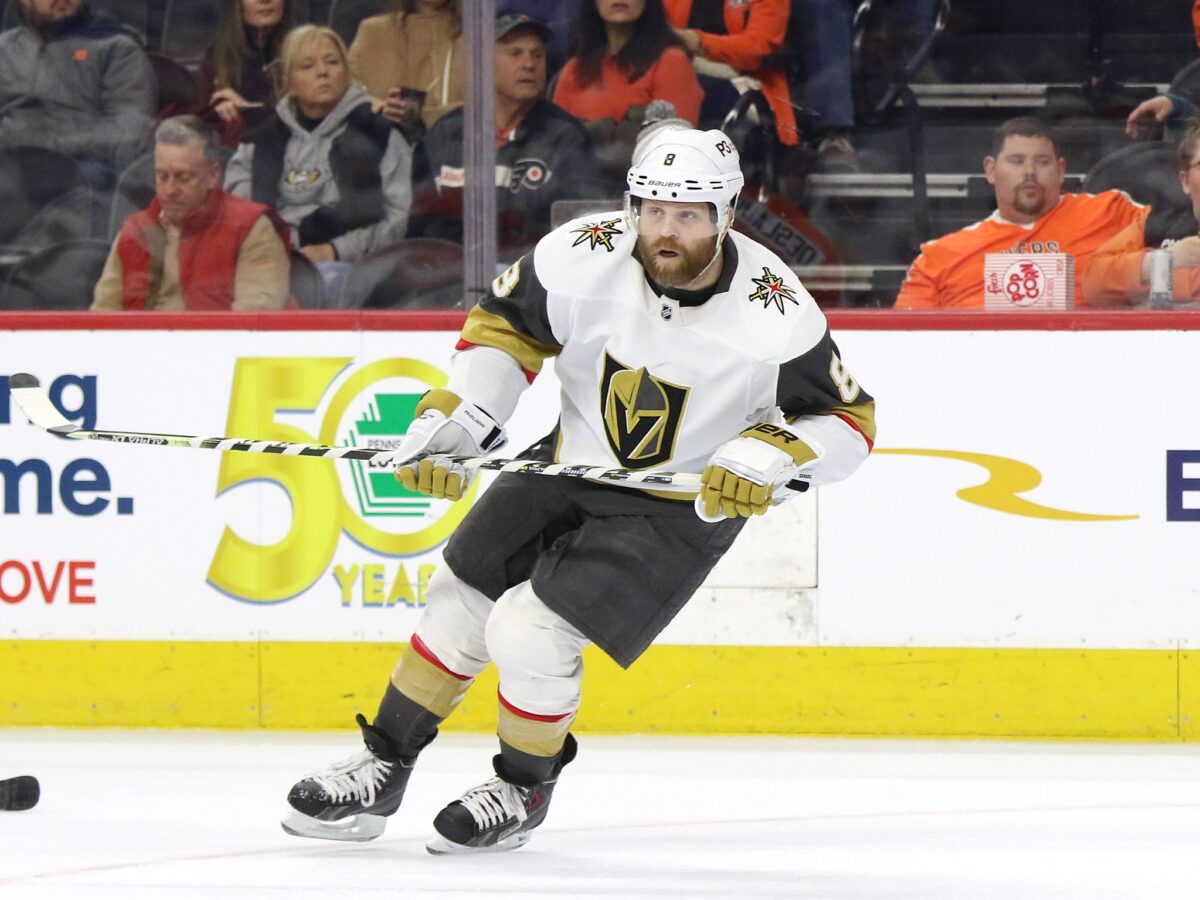
Phil Kessel is a difficult player to evaluate based on his stats, as he spent much of his prime with a rebuilding Toronto Maple Leafs team. Despite that, he ranks among the leaders in both goals and assists for American-born players. He has three Stanley Cups to his name, and holds the record for the most consecutive games played in a career. Setting this record in the midst of a pandemic, he is the definition of a warrior.
Roenick, one of the more animated personalities in the history of the NHL, is an iconic American-born player. His lack of winning a single major award hinders his legacy a bit, but 1,216 points are hard to come by. With 513 career goals in the NHL, very few rank above him.
To finish off the offense, there is no better player to do that than Pavelski. While he is a member of the 1,000-point club, he is also one of the best two-way players on this list. Only three times in his career has he not received a vote for the Selke Trophy, and one of those came when he was just a rookie. Since his sophomore season in the league, he has been one of the best goal scorers and defensive forwards in hockey. He has never won a Stanley Cup or an individual award, but he still has a case for the Hall of Fame.
Extras: Matthew Tkachuk, Doug Weight, Zach Parise
It was difficult to leave Matthew Tkachuk off of this list, but he has yet to win a major NHL award. While it could be argued that his prime is above some of the players on the list, he is still fairly young. He could be on the list in a few seasons, but for now, he just misses the cut.
Doug Weight was an established player in the NHL and is a member of the 1,000-point club, but only found himself winning a King Clancy Trophy during the final season of his career. He had a very good prime, scoring 104 points in his best season, but this is not quite good enough to crack the lineup with how much talent it boasts.
Zach Parise’s point and goal totals are actually quite similar to Tony Amonte’s. For the same exact reasons, he is off the list. He may have been a top-10 player in the NHL at his best, but was simply not a true game-breaker for long enough. His career was littered with award nominations, but was ultimately unable to capture one. His career was fantastic, but he misses out on the team narrowly.
Defense Line 1: Brian Leetch, Chris Chelios
Brian Leetch and Chris Chelios are not just two of the best defensemen in US history, but arguably the history of the NHL, as well. With five Norris Trophies spread across the two of them, it is hard to deny that.
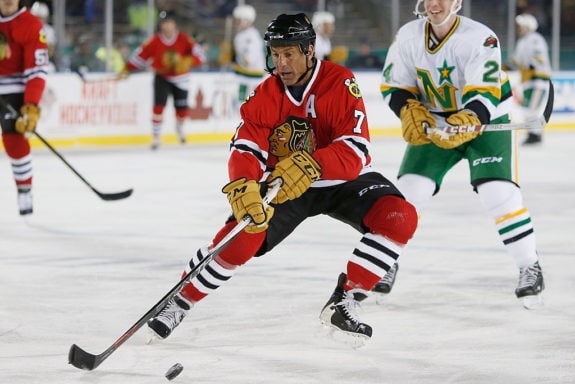
Leetch is one of the few players to have 1,000 points in his career as a defenseman. A member of the 100-point season club as well as remaining one of the best offensive defensemen in the league even after league scoring went down, his legendary status is deserved. Winning a Calder Trophy, a Stanley Cup, a Conn Smythe Trophy, and two Norris Trophies, his Hall of Fame induction was all but a guarantee.
Chelios went 13 straight seasons receiving votes for the Norris Trophy, won the award three times, and had three Stanley Cup championships in his career. The hard-hitting, long-tenured defender had himself a sensational career. Playing from his age-22 season up until he was 48, he certainly had a love for the game. He was a shoo-in for the Hall of Fame, playing at a high-end level from his 20s to his early 40s.
Defense Line 2: Phil Housley, Brian Rafalski
The career paths of Phil Housley and Brian Rafalski couldn’t have been more different, yet both are seen as two greats from their eras. Both standing at 5-foot-10, their shorter height for defenders didn’t prevent them from playing at a high level.
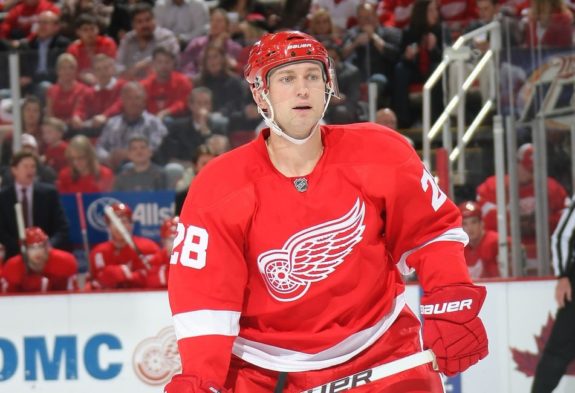
Housley sits as the fourth-highest scorer among defensemen in league history, with 1,232 points to his name. He never won a Norris Trophy or a championship, but his lengthy stint of being a top-end defender got him into the Hall of Fame, and, consequently, on this list.
Rafalski didn’t play his first NHL season until he was 26 years of age, but still had a very solid career. Undrafted and playing in the dead puck era as an offensive defenseman, he was still able to score over 500 points in just 833 NHL games. Winning three Stanley Cups in a career that started much too late, his time in the NHL was not too shabby.
Defense Line 3: Mark Howe, Ryan Suter
For the final defensive pairing, two more sensational defensemen make it up. Mark Howe and Ryan Suter are the best remaining, and both of them were notable in the vastly different eras that they played in.
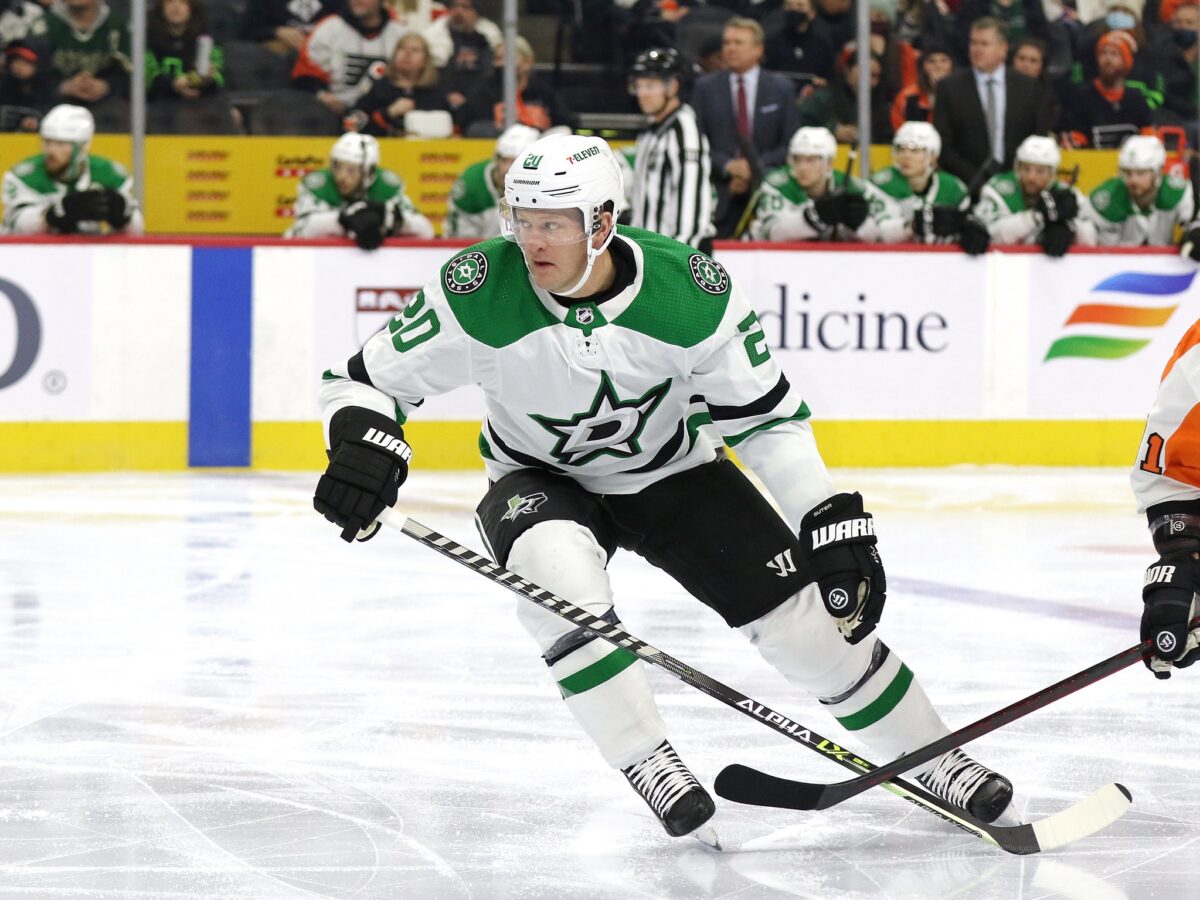
Howe didn’t come over to the NHL until he was 24, and still put up legendary numbers. He finished second in Norris Trophy voting three times, and also scored 742 points in his 929-game NHL career. He never won a Stanley Cup, but did more than enough to be elected to the Hall of Fame in 2011 and recognized as one of the all-time greats.
For many years, Suter was atop his class in terms of defense. For 10 seasons in a row, he finished with at least a vote for the Norris Trophy, but never actually captured one. At his peak, he was considered to be one of the best defenders in the league, so he belongs in the lineup as a result.
Extras: Mathieu Schneider, Gary Suter
Mathieu Schneider was the ultimate journeyman in the NHL, playing for 10 different teams in his career. His 743 points in 1,289 NHL games are very impressive, but only finished as high as sixth in Norris Trophy voting in his career. He narrowly misses the roster, but absolutely deserves a mention.
Gary Suter’s Calder Trophy in 1985-86 and Stanley Cup in 1988-89 were the only two awards he won in his career, but he was still tremendous. As a defenseman, 844 points in 1,145 games are very solid, even rivaling some of the forwards on this list. With that being said, he simply did not have enough award consideration to make the lineup. His nephew, Ryan, made it narrowly over him, simply due to dominating for a longer period of time.
Goaltenders: Jonathan Quick, John Vanbiesbrouck
In goal, America has a couple of gems in both Jonathan Quick and John Vanbiesbrouck. It’s hard to pin the two against each other since they played in completely different eras. Nonetheless, they are two of the best netminders in NHL history.
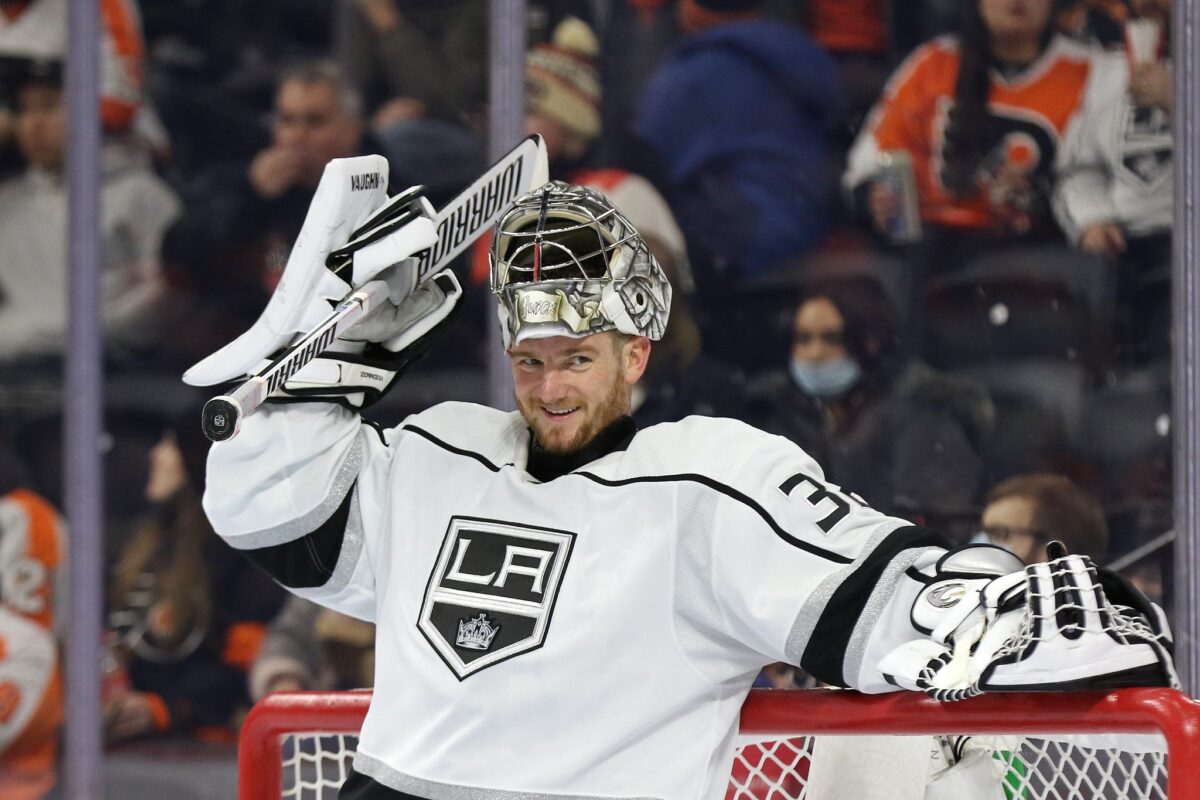
Quick has never won a Vezina Trophy in his career, but was the best goaltender in the 2012 NHL Playoffs, leading the Los Angeles Kings to their first-ever Stanley Cup, and winning the Conn Smythe Trophy as a result. Following it up with another championship a few years later and one of the best primes of any goaltender of his era, he is easily one of the greatest American goaltenders in league history.
Related: 10 Best NHL Goaltending Seasons Since 2008-09
Vanbiesbrouck’s career statistics don’t look as good today as they may have in his era, due to the fact that he suffered the brunt of the high scoring of the 1980s and 1990s. Even with that in mind, he was consistently one of the best goaltenders in the league, and even won the Vezina Trophy in 1985-86. If Quick isn’t the best goaltender in American history, your answer might be the backup netminder of this lineup.
Extra: Ryan Miller
During the 2000s and early 2010s, there were very few netminders who were better than Ryan Miller. Winning the Vezina Trophy in 2009-10, there is no doubt that he is among some of the best American goaltenders in league history. It’s a very close race between him and Vanbiesbrouck, so there has to be at least one gripe. The latter of the two finished with Vezina Trophy votes in nine seasons versus two for the former, leaving the more modern netminder as an extra.
With an influx of new American talent in the NHL, this list could be drastically different over the course of the next few seasons. Hockey has always been known as Canada’s game, but Americans are doing their best to try and change that narrative.
